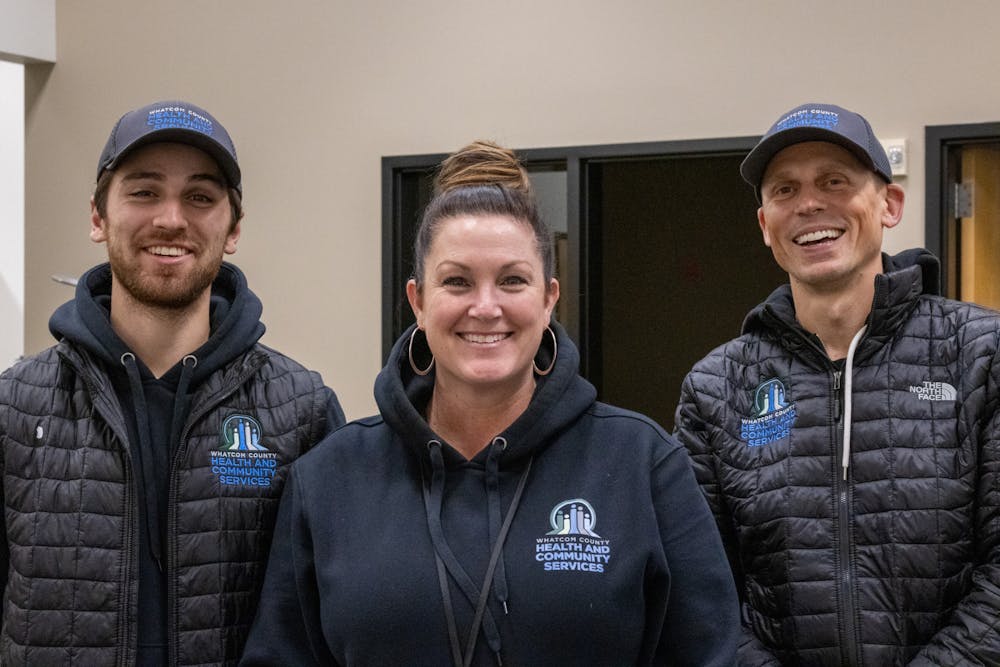The Whatcom County Health and Community Services program is approaching the one-year point of the pilot program Alternative Response Team within the City of Bellingham. This program was a response to the community feedback that there was a need for a new kind of law enforcement.
ART was launched in January 2023 as an alternative to incarceration, shortly before the city banned public drug use, and has since operated in partnership with the Bellingham Police Department to respond to mental health and substance abuse cases. This aid provides care to vulnerable populations in Bellingham and alleviates law enforcement pressure.
“ART responds and helps clients access services when the client is unable to maintain their own health and safety,” said Adam Estrada, an ART behavioral health specialist. “This consequently increases the safety of the community [and] means other first responders are freed up to take calls more in line with their specializations.”
Last summer, ART established a team member at What-Comm 911 Dispatch who dispatches the response team to behavioral health-based cases. The program personnel includes four behavioral health specialists who are equipped with de-escalation, defensive tactics and trauma-informed care training. Additionally, the team members all have at least a bachelor's degree in a human services-related field and a minimum of three years working with vulnerable populations.
The team is unarmed and responds in county cars that don’t have sirens and must obey all traffic laws. However, having an ART dispatcher at 911 has allowed the team to respond faster and more efficiently, said ART Supervisor Jon Dukes.
“It's about five to 10 minutes from the time the call comes in to the time it gets to our dispatcher,” he said. “We're trying to respond with boots on the ground in about 15 to 30 minutes into the community.”
When ART members are dispatched, they communicate with the reporting party to gather information regarding the individual experiencing a crisis. While engaging with the client, the team works to understand not just their symptoms but them as a person.
“We provide space to discuss concerns of importance, and work with the client to find manageable and actionable steps to address those concerns,” Estrada said. “We understand that the person is not the problem, the problem is the problem, and we seek to provide the safest and soonest solution for the human experiencing crisis.”
This alternative approach to emergency response also helps stabilize clients and reduce stressors that are interfering with their “coping mechanisms,” Estrada said. This also reduces the number of individuals incarcerated.
“ART can intervene prior to or as a client’s behavior is deteriorating to the point that their behavior presents a likelihood of incarceration,” Estrada said. “This intervention and advocacy often results in the client receiving treatment instead of a sentence.”
After responding to the crisis, ART collaborates with other local resources, such as the Homeless Outreach Team, for clients needing further mental health and behavioral support.
“ART has the ability to de-escalate our clients, help them recognize what their needs are and properly refer out to partners as deemed appropriate,” said Marisa Schoeppach, the Homeless Outreach Team manager. “It is a beneficial program that supports folks in our community and supports them with identifying their needs in a professional and ethical manner.”
In addition to serving as the ART supervisor, Dukes also oversees the development of the Whatcom County Co-Responder program within the Response Systems Division at Whatcom County Health and Community Services. This program will be launched in winter 2023 or spring 2024 and offer a similar support scope as ART does to the wider Whatcom County.
“I look at our services as really a multi-pronged approach of providing support not only to the identified clients but to the greater community for health and safety,” Dukes said.
ART is currently in the pilot phase of its implementation and has integrated a rapid improvement model, allowing it to improve services quickly as it receives community and stakeholder feedback, said Dukes. As the program develops, ART will have data and statistics that reflect the impact their services have on incarceration levels.
For more information on ART visit this website, and to view a timeline of other city alternatives to incarceration programs, visit this website.
Sophie Cadran(she/her) is a city news reporter for The Front this quarter. She is a second-year journalism student at Western with a minor in communication studies. In her free time, she enjoys getting outside with friends and family, reading and swimming.
You can reach her at sophiecadran.thefront@gmail.com






